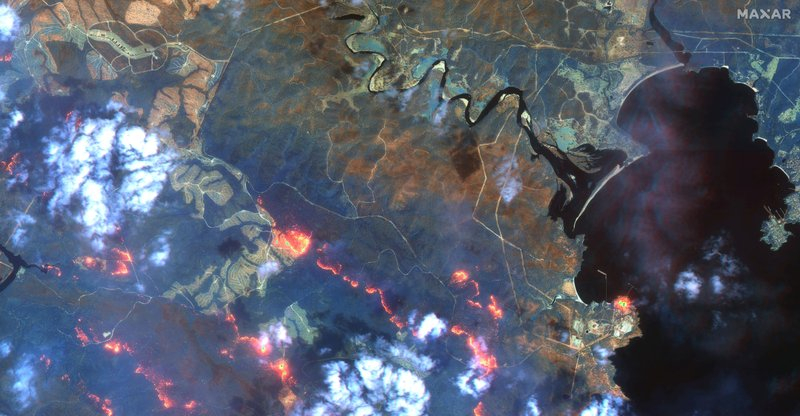The coming five years are anticipated to be warmest period on record, according to Britain's Met Office on January 30, and there is an outside chance of Earth breaching the Paris deal 1.5 degrees Celsius temperature rise cap before 2024.
In a regular "decadal forecast" looking at predicted near-term climate trends, it said that each year between 2020-2024 is set to be 1.06-1.62 degrees Celsius hotter than historical averages.

Volcanic eruption at White Island, New Zealand in 2019. The forecast said that barring a large volcanic eruption that could dent global heating with Sun-blocking debris, average five-year temperatures are expected to be between 1.15-1.46 degrees Celsius above pre-industrial levels. /AP Photo
Volcanic eruption at White Island, New Zealand in 2019. The forecast said that barring a large volcanic eruption that could dent global heating with Sun-blocking debris, average five-year temperatures are expected to be between 1.15-1.46 degrees Celsius above pre-industrial levels. /AP Photo
The Met Office forecast it "likely" that the hottest year on record, 2016, will be beaten in that time frame.
Last year alone, record highs were registered in several countries, including across northern Europe during an unprecedented heatwave that scientists said was made more likely by climate change.

This satellite photo provided by Maxar Technologies shows wildfires spreading in the area south of Eden and Twofold Bay, shown in black, in New South Wales state of Australia, January 12, 2020. /Satellite image ©2020 Maxar Technologies via AP
This satellite photo provided by Maxar Technologies shows wildfires spreading in the area south of Eden and Twofold Bay, shown in black, in New South Wales state of Australia, January 12, 2020. /Satellite image ©2020 Maxar Technologies via AP
The 2015 Paris deal commits nations to limit temperature rises to "well below" two degrees Celsius through sweeping cuts to greenhouse gas emissions.
A more ambitious cap of 1.5 degrees Celsius would require emissions to fall 7.6 percent annually by 2030, according to the United Nations.
With just over one degree Celsius of warming so far, Earth has already been battered by a string of deadly wildfires, droughts, and storm surges exacerbated by rising seas – phenomena all made more likely by climate change.
(If you want to contribute and have specific expertise, please contact us at nature@cgtn.com)
Source(s): AFP